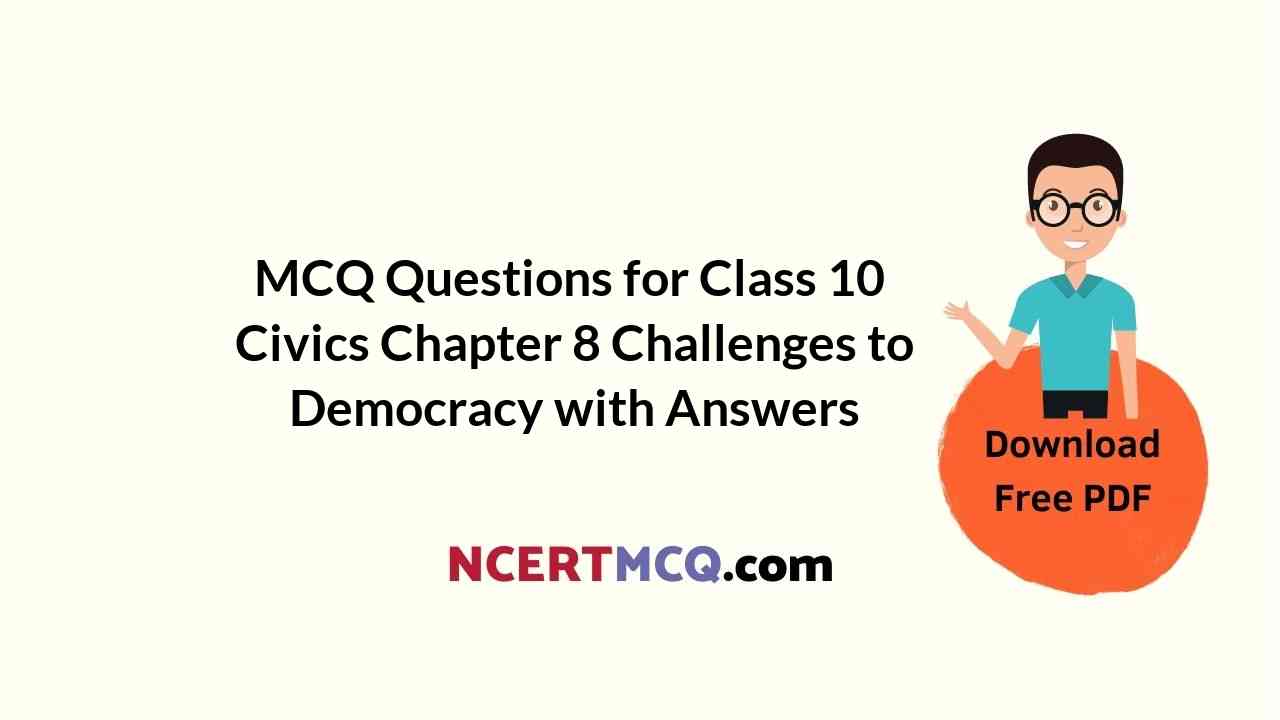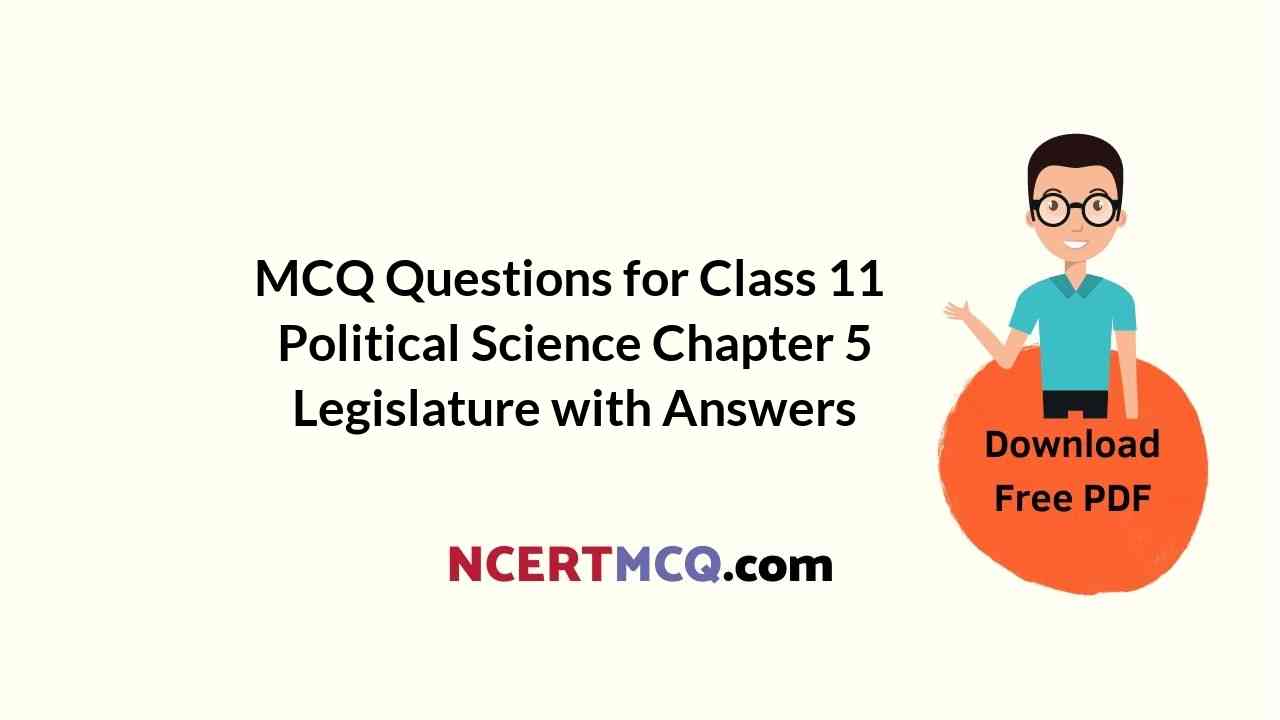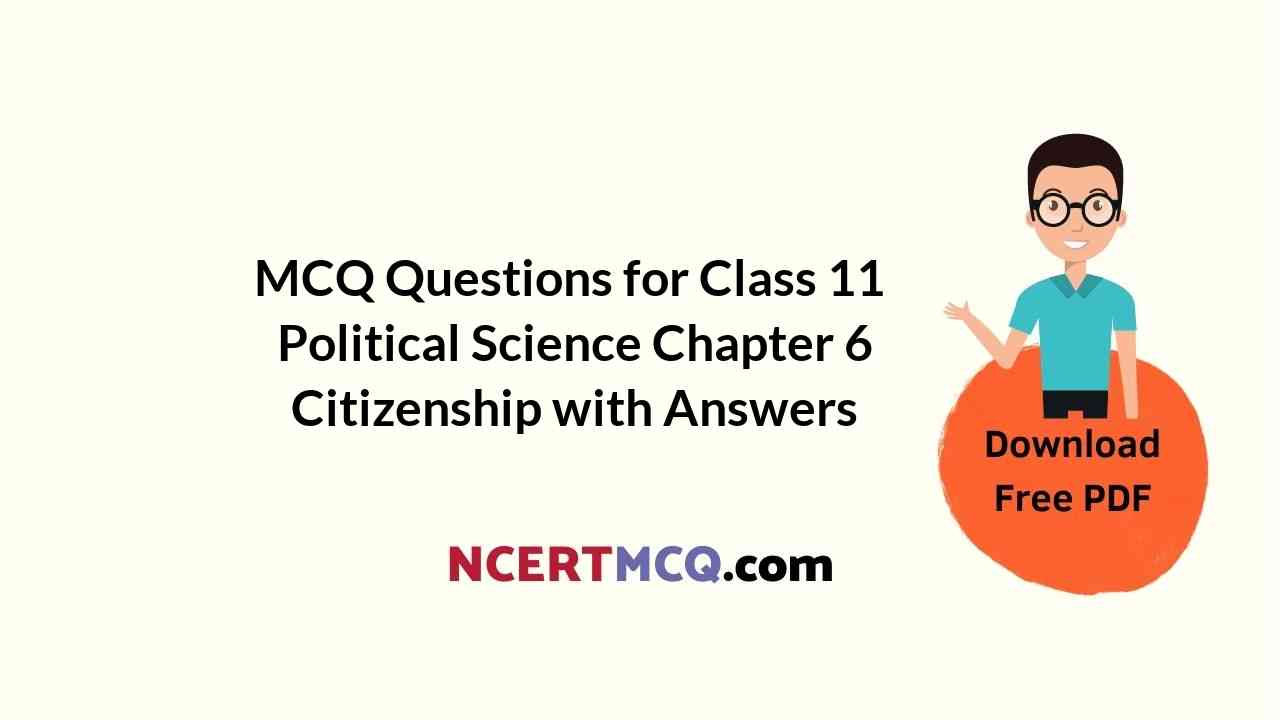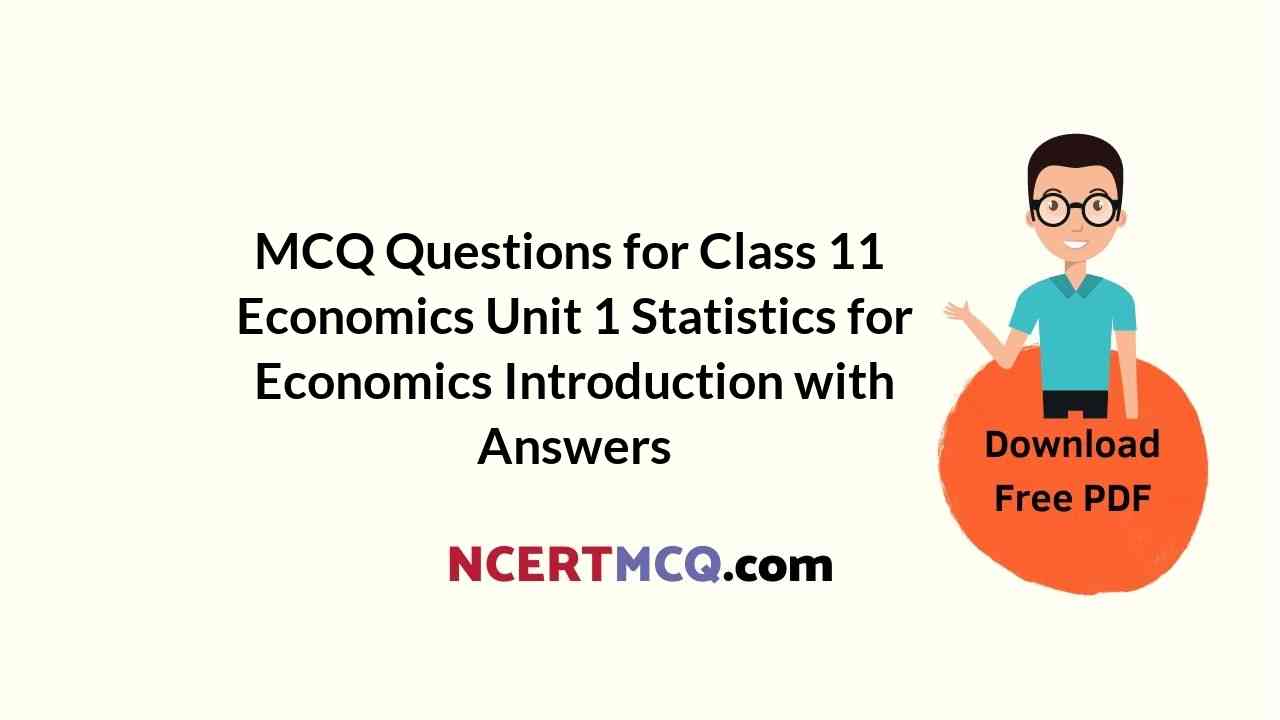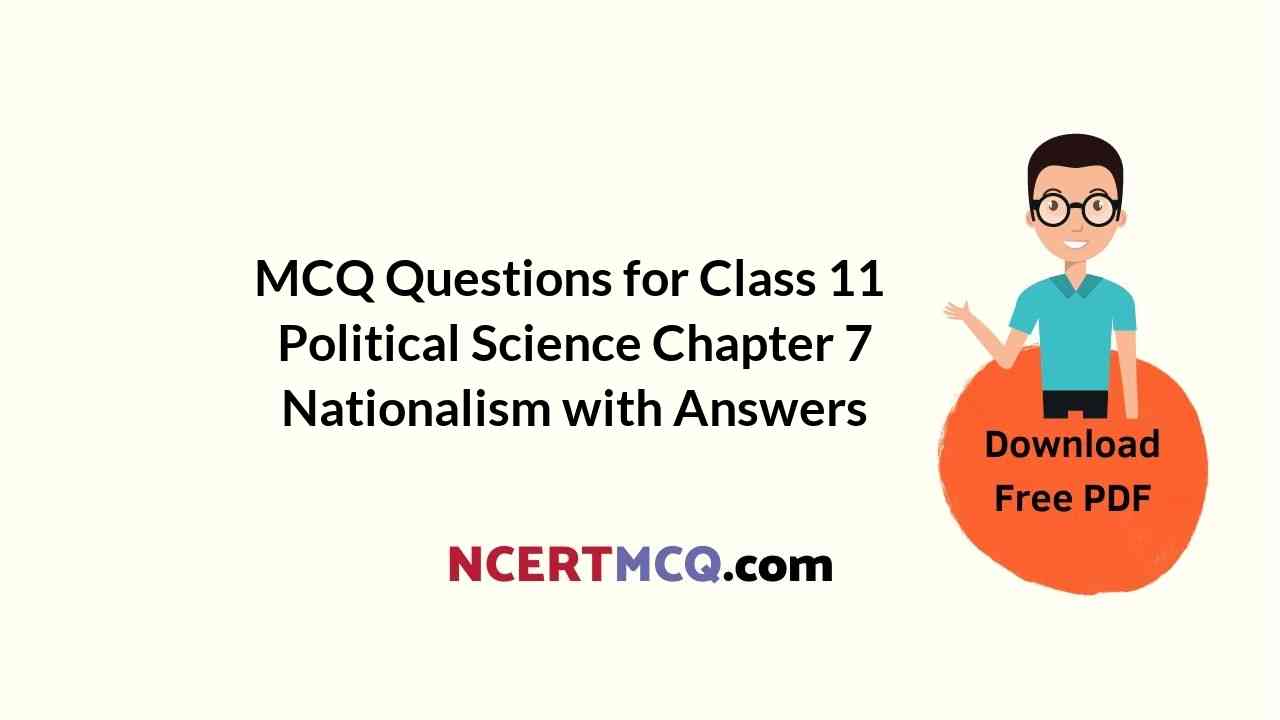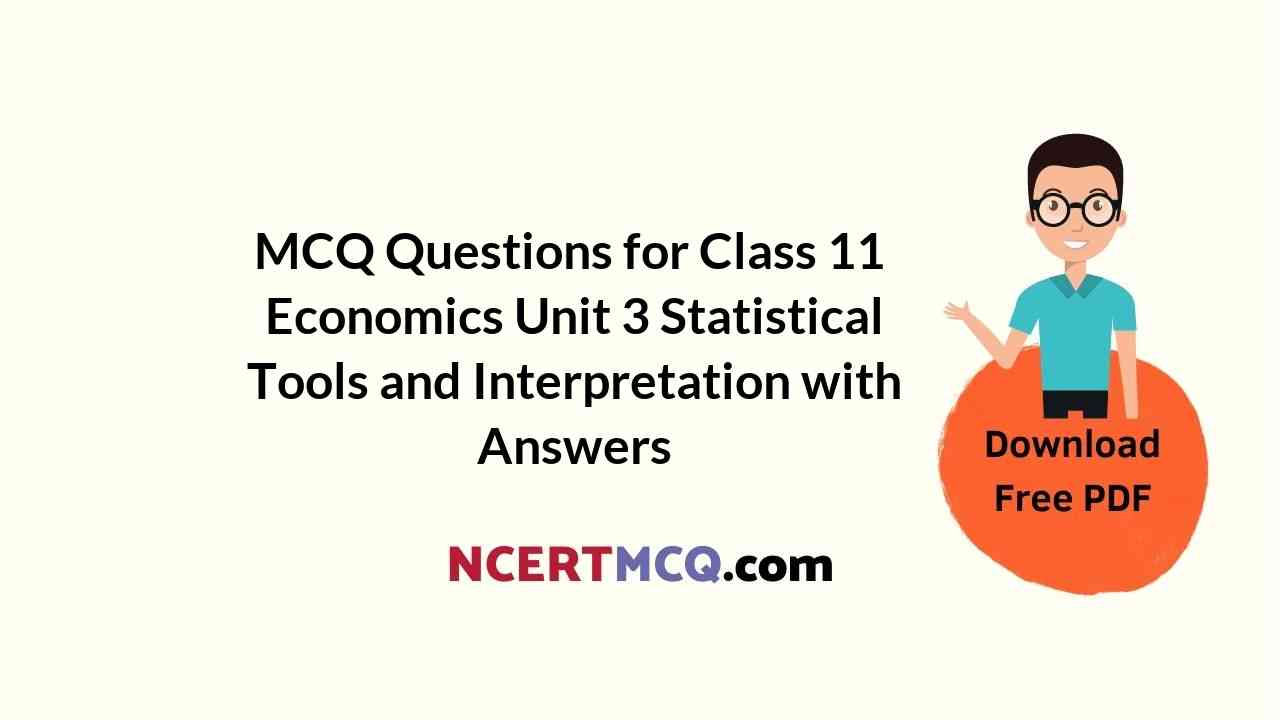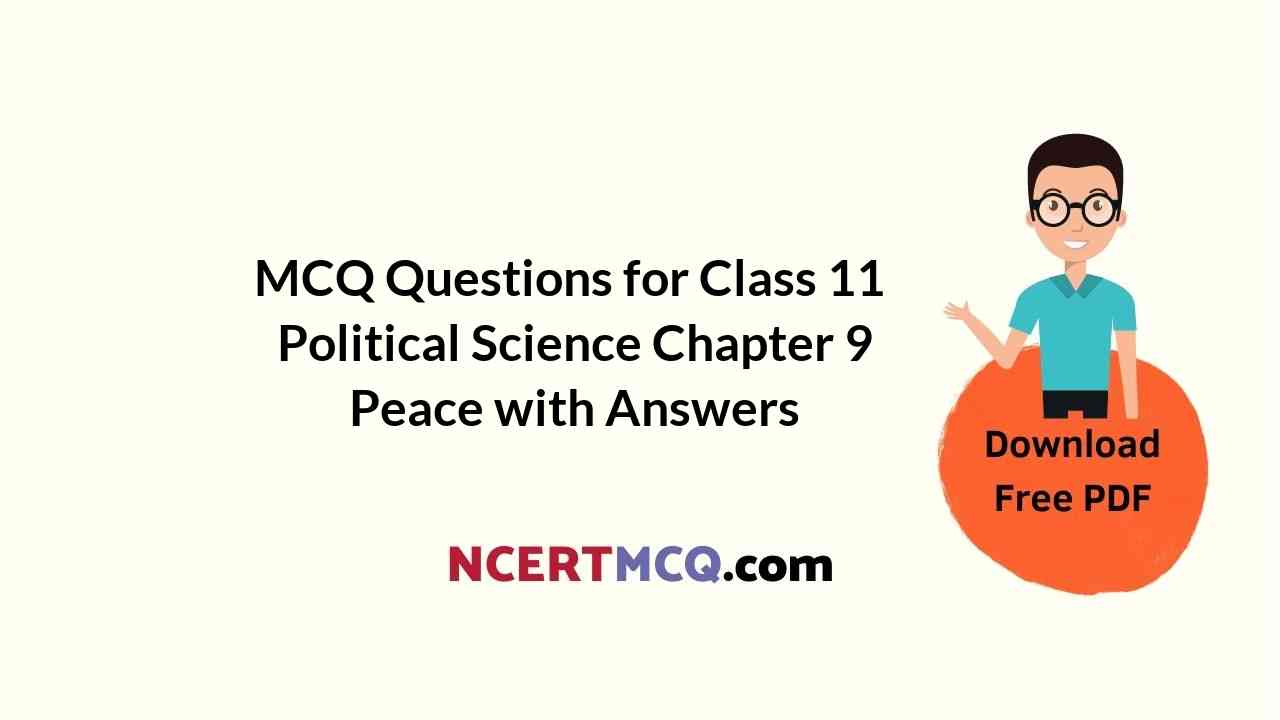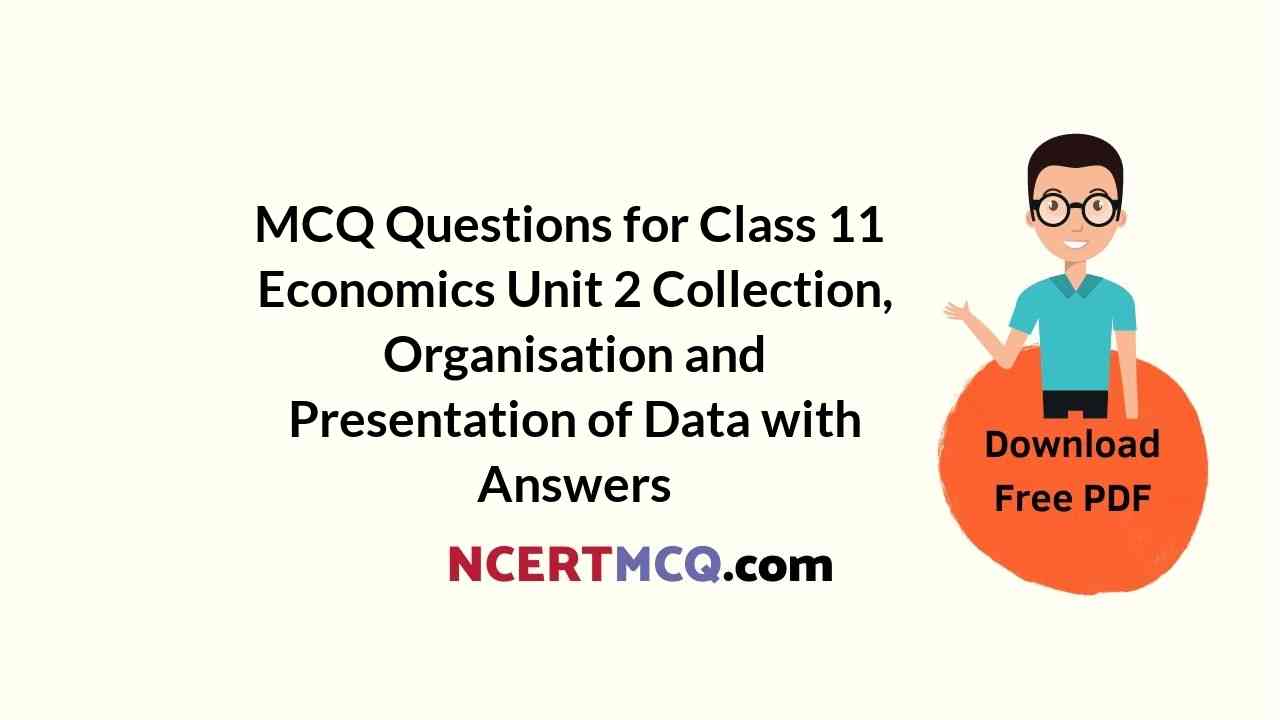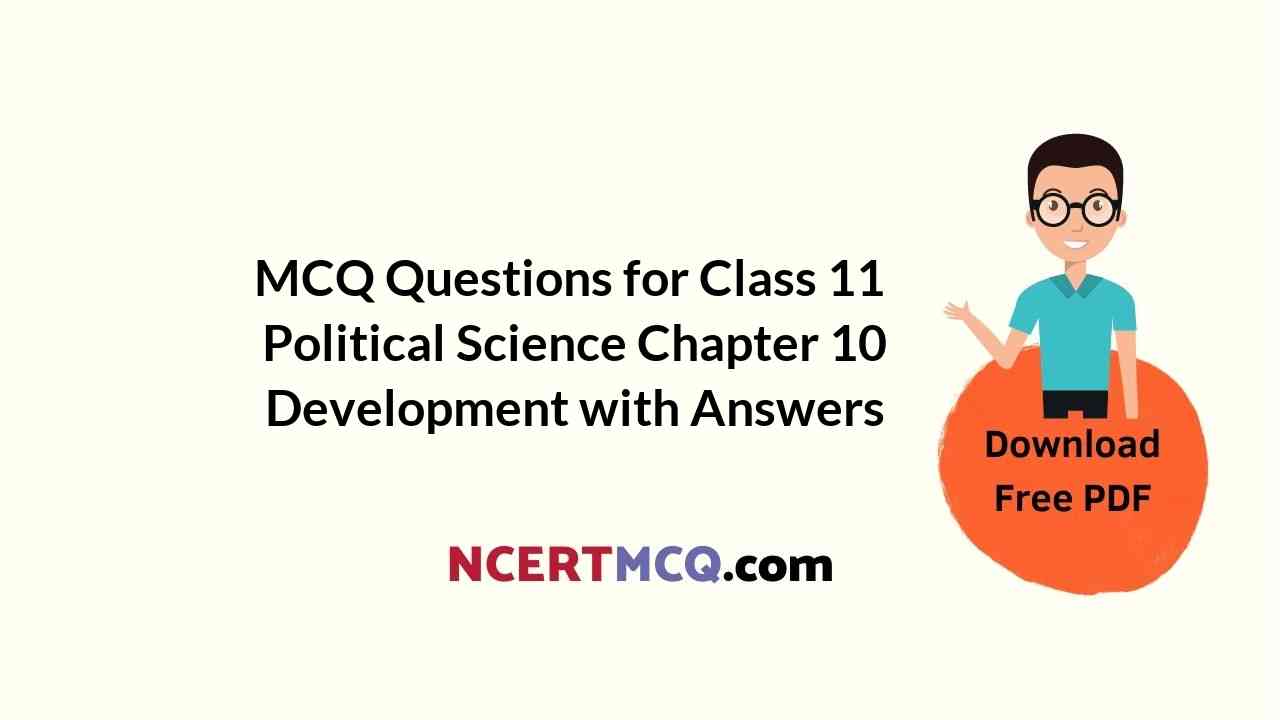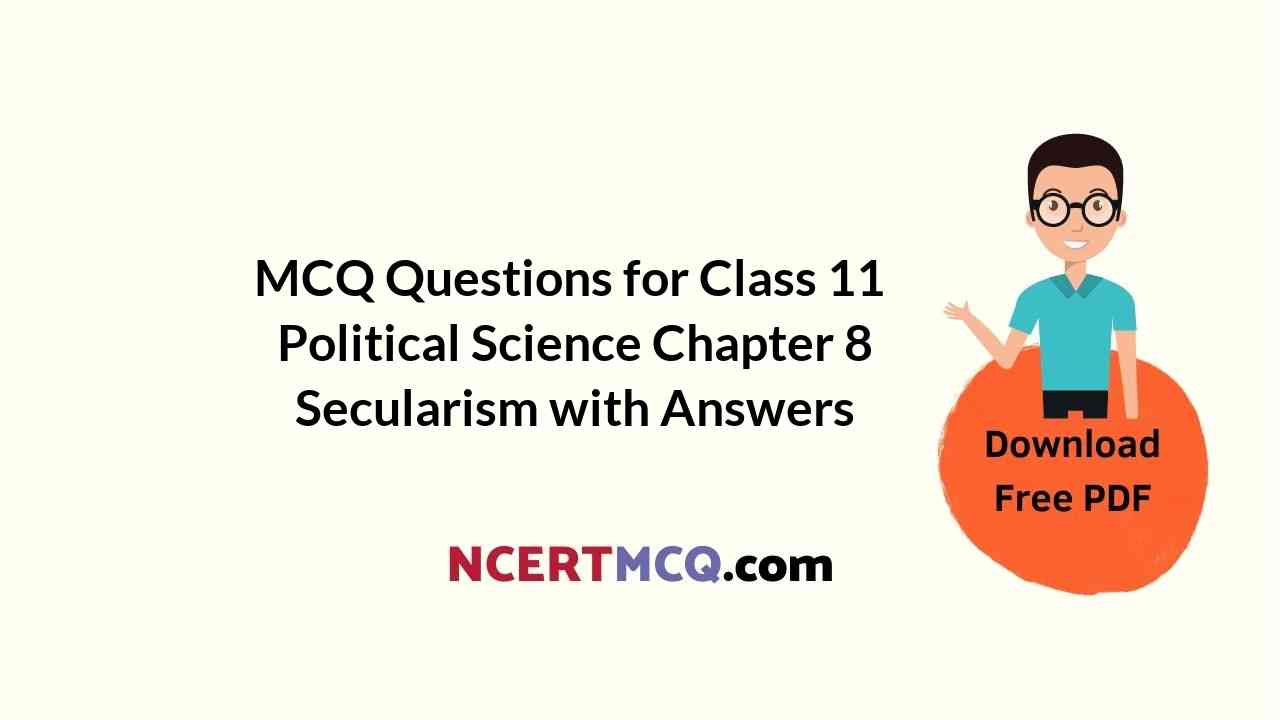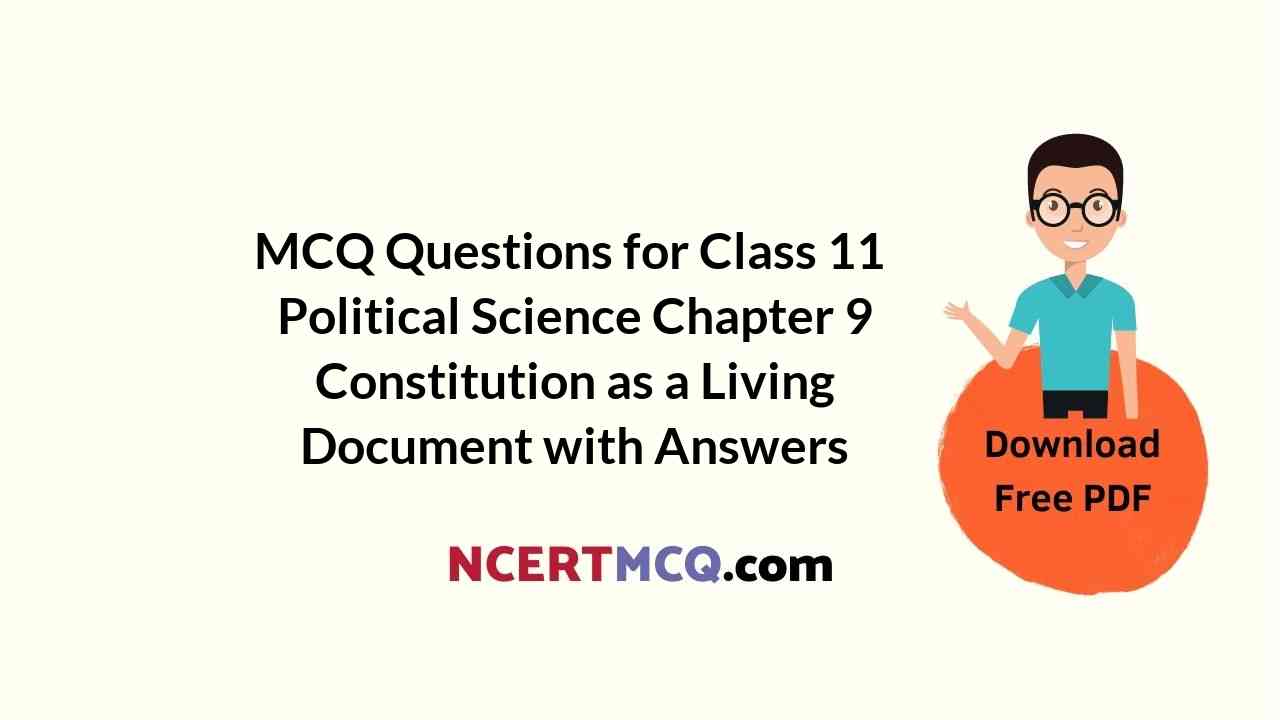Check the below NCERT MCQ Questions for Class 10 Civics Chapter 8 Challenges to Democracy with Answers Pdf free download. MCQ Questions for Class 10 Social Science with Answers were prepared based on the latest exam pattern. We have Provided Challenges to Democracy Class 10 Civics MCQs Questions with Answers to help students understand the concept very well. https://ncertmcq.com/mcq-questions-for-class-10-social-science-with-answers/
Class 10 Social Science Civics Chapter 8 MCQ With Answers
Civics Class 10 Chapter 8 MCQs On Challenges to Democracy
Choose the correct option:
Challenges To Democracy Class 10 MCQ Question 1.
Which one of the following laws was enacted by the Government of India in October 2005?
(a) The Right to Property Act
(b) The Right to Education Act
(c) The Consumer Protection Act
(d) The Right to Information Act
Answer
Answer: (d) The Right to Information Act
MCQ On Challenges To Democracy Class 10 Question 2.
Which one of the following is a foundational challenge of democracy?
(a) Empowering women
(b) Keeping military away from controlling government
(c) Ensuring greater power to local governments
(d) Empowering minority groups.
Answer
Answer: (b) Keeping military away from controlling government
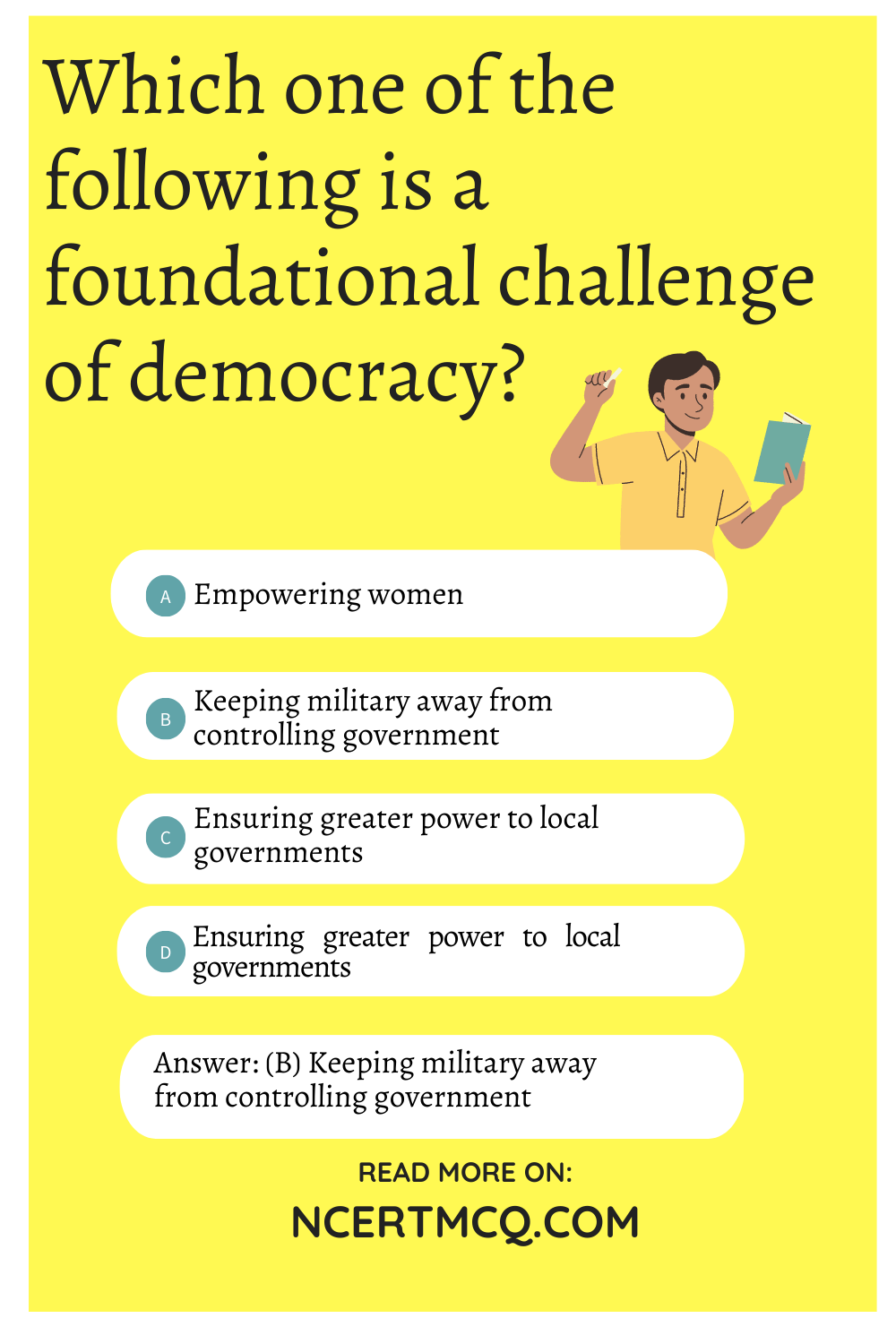
Challenges To Democracy MCQ Question 3.
Which one of the following is an indicator of deepening of democracy?
(a) Installation of democratic government
(b) Keeping military away from controlling government
(c) Strengthening of the practices of democracy
(d) Inclusion of women in party politics
Answer
Answer: (c) Strengthening of the practices of democracy
Question 4.
Which legal act is the best to empower people to carry out democratic reforms?
(a) The Right to Information Act
(b) The Right to freedom
(c) The Right to education
(d) The Right to move freely
Answer
Answer: (a) The Right to Information Act
Question 5.
Every established democracy faces
(a) challenge of expansion
(b) challenge of deepening of democracy
(c) foundational challenge
(d) dictatorship
Answer
Answer: (a) challenge of expansion
Question 6.
Looking at the expanded definition, which one of the following statements is not correct about democracy?
(a) The rulers elected by the people must take all the major decisions.
(b) Elections must offer a fair choice to the people to change the current rulers.
(c) The choice should be available to all people on an equal basis.
(d) To exercise this choice government must not be limited by basic rules of the Constitution and citizens’ rights.
Answer
Answer: (d) To exercise this choice government must not be limited by basic rules of the Constitution and citizens’ rights.
Question 7.
In Nepal, Constituent Assembly about to be elected, unrest in Terai areas, Maoists have not surrendered arms.
(a) Foundational challenge
(b) Challenge of expansion
(c) Deepening of democracy
Answer
Answer: (a) Foundational challenge
Question 8.
In Belgium, one round of constitutional change takes place, but the Dutch speakers, not satisfied, want more autonomy.
(a) Foundational challenge
(b) Challenge of expansion
(c) Deepening of democracy
Answer
Answer: (b) Challenge of expansion
Question 9.
Democracy does not stand for:
(a) Democratic Right
(b) Elections
(c) Violence
(d) Accommodation of diversity
Answer
Answer: (c) Violence
Question 10.
Which one of the following situations represents the success of democracy?
(a) US as the only Super power disregards the UN and takes unilateral action.
(b) General Pinochet government defeated, but army is still under control of many institutions.
(c) The King of Nepal Birendra accepted constitutional Monarchy.
(d) Integration of French speaking and Dutch speaking people in Belgium.
Answer
Answer: (d) Integration of French speaking and Dutch speaking people in Belgium.
Question 11.
Which one of the following is not true regarding ‘Democratic Reforms’?
(a) Legal measures can sometimes prove to be counter-productive.
(b) The media should play an active role.
(c) Legal measures always help in reforming politics.
(d) Political empowerment and participation of citizens can help.
Answer
Answer: (c) Legal measures always help in reforming politics.
Question 12.
What is the tempting way of reforming politics?
(a) Legal ways
(b) Illegal ways
(c) Both a and b
(d) None of the above
Answer
Answer: (a) Legal ways
Question 13.
How many parts of the globe is not under democratic government?
(a) One-sixth
(b) One-fourth
(c) One-third
(d) None of the Above
Answer
Answer: (b) One-fourth
Question 14.
Which one of the following countries is facing the challenge of expansion of democracy?
(a) India
(b) US
(c) Sri Lanka
(d) All of the above
Answer
Answer: (d) All of the above
Question 15.
What is not true regarding a challenge?
(a) Any sort of problem or difficulty is called a challenge.
(b) A challenge is a difficulty which is significant and which can be overcome.
(c) A challenge is a difficulty that carries within it an opportunity for progress.
(d) Once we overcome a challenge, we go up to a higher level than before.
Answer
Answer: (a) Any sort of problem or difficulty is called a challenge.
Question 16.
Mention reforms that Indian democracy needs?
(a) New laws to ban undesirable things.
(b) It is important to improve quality of political participation by ordinary citizens.
(c) Reforms in the administration that will reduce corruption in the political circles.
(d) All of the above
Answer
Answer: (d) All of the above
Question 17.
Which one of the following statements about democracy is false?
(a) People feel free and equal in a democracy
(b) Democracies resolve conflict in a better way than others
(c) Democratic government is more accountable to the people.
(d) Democracies are more prosperous than others
Answer
Answer: (d) Democracies are more prosperous than others
Question 18.
In which of the following country, women are not allowed to take part in public activities?
(a) India
(b) South Africa
(c) Saudi Arabia
(d) Chile
Answer
Answer: (c) Saudi Arabia
Question 19.
Which one of the following is not true regarding how politics can be reformed?
(a) Only legal constitutional changes can reform politics.
(b) There is a need to strengthen democratic practices.
(c) Citizen’s organisations and media should play an active role.
(d) The citizens should be empowered through rights like the Right to Information.
Answer
Answer: (a) Only legal constitutional changes can reform politics.
Question 20.
Which one of the following law is a good example of a law that seeks to empower people to carry out democratic reforms?
(a) Right to Information Act
(b) Law banning sale and purchase of alcoholic drinks in Haryana
(c) Law banning dowry
(d) None of the above
Answer
Answer: (a) Right to Information Act
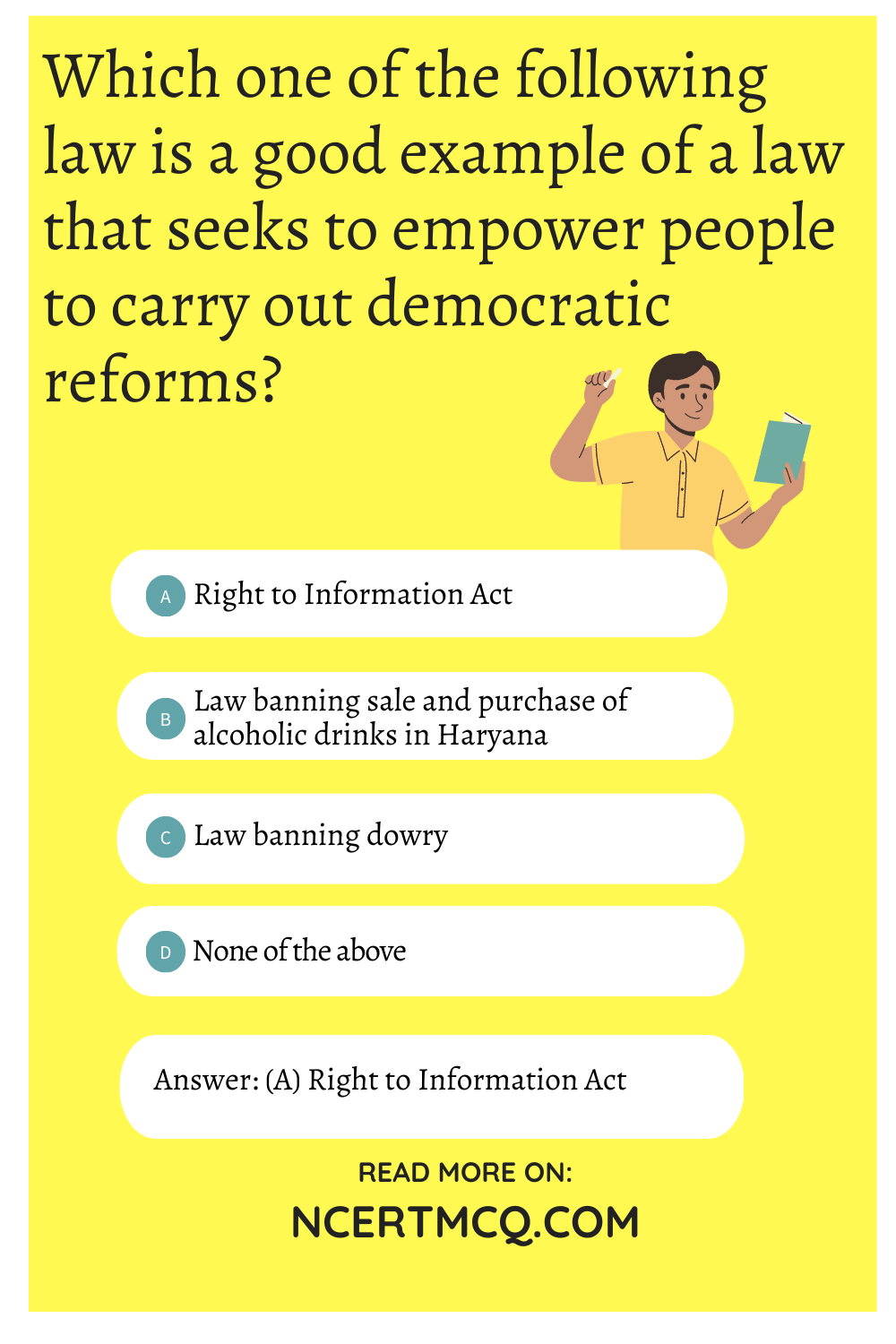
Picture-based Questions:
Question 1.
Each of these cartoons represents a challenge to democracy taken from NCERT textbook pages 103-105. Describe what that challenge is. Also place it in one of the three categories mentioned in the first cartoon.
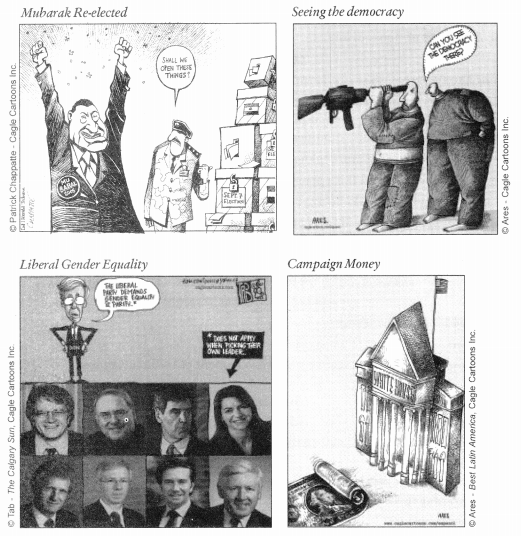
Answer
Answer:
(i) Mubarak Re-elected: It means that he has used unfair means in the election. This is a case of challenge of expansion of democracy.
(ii) Seeing the Democracy: This cartoon points out the use of muscle power in establishing democracy. This is a case of the foundational challenge.
(iii) Liberal Gender Equality: This cartoon shows that measures have been taken to strengthen democracy by accommodating social diversities. This is a case of the challenge of deepening of democracy.
(iv) Campaign Money: This cartoon shows that money and muscle power can be ignored while making government decisions. This is a case of the challenge of deepening of democracy.
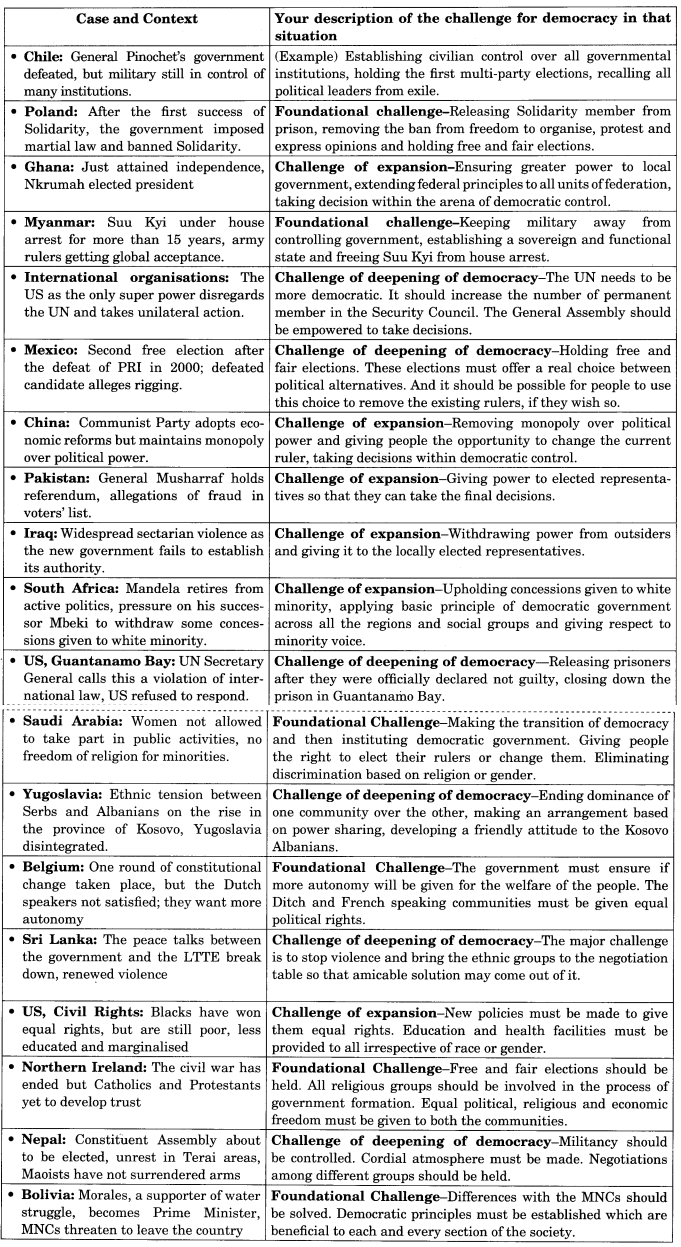
We hope the given NCERT MCQ Questions for Class 10 Civics Chapter 8 Challenges to Democracy with Answers Pdf free download will help you. If you have any queries regarding Challenges to Democracy CBSE Class 10 Civics MCQs Multiple Choice Questions with Answers, drop a comment below and we will get back to you soon.
Class 10 Social Science Civics MCQ:
